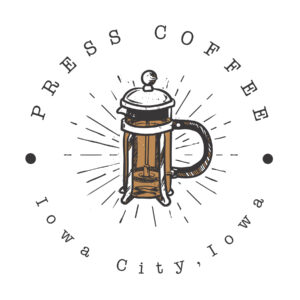Coffee Vocabulary
- Lisa Edwards
- Nov, 06, 2019
- Behind the Bar, Origin
- Comments Off on Coffee Vocabulary
These days consumers are encouraged to read the label, buy organic, and spend their money in an environmentally conscious way. What does that mean when it comes to coffee? Recently we laid out the different kinds of espresso drinks, but on the brewed coffee side there are a bunch of words that also need a little more context.
Rising in popularity at specialty coffee shops are single-origin coffees. This can mean the beans were sourced from either a specific crop, farm, or region of a country. Coffee is harvested only once or twice a year and has a certain flavor profile specific to the climate and environment it is grown in. That’s why at Press Coffee you might find Burundi on our menu certain months of the year, and Ethiopian at other times.
Ordering a single-origin coffee as opposed to a blend of beans typically means you’re paying for a better product and one that is traceable to the source. The label may even list the specific farmer, lot number, and altitude it was grown at. This encourages the producers to experiment with different varietals, perhaps earning a better price, and take greater pride in their product. You may find shops who promote a selection of single-origin coffees but it is also evident by its name: Mexico, Kenya, Guatemala, and so on.
Now that you know where your coffee came from, do you know how it was grown? Coffee producers who farm without the aid of artificial substances can certify it to be USDA Organic. This requires that 95% (unless specified to be 100%) of the coffee was grown on land that wasn’t exposed to prohibited products or chemicals for three years prior, has a sufficient buffer between any inorganically grown crops, and a sustainable plan for crop rotation. Conventionally grown coffee plants have been developed to flourish in the open sun while organic farming encourages the natural habitat to flourish. It strengthens the environment from disease, protects the producers and land from harmful substances, and promotes mutually beneficial relationships with native plants and animals.
Despite being USDA Organic, exemptions can be made for certain chemicals and not all naturally occurring toxins are safe to use. Growing organic coffee can also be cost-prohibitive for the farmer who has to pay for transportation to obtain organic fertilizers, increased labor, as well as fees for inspections and certification. Organic farming is a slower process than with the use of synthetic pesticides, so even though they are selling it at a higher price, the returns may not happen right away due to smaller yields. With some of these barriers keeping people from achieving certification, they could still be growing coffee in a sustainable way. Ultimately, when it is done right, organic coffee supports the producers and the ecosystem.

Ok, so you know where the coffee was sourced and how it was grown, but how did it get from origin to roaster? The responsibility for an ethically grown product also falls on the person who imports it. Just like they can certify to be USDA Organic (like Cafe del Sol Roasting has done), coffee roasters can seek certification for Fairtrade. In the late ’80s, supply far exceeded demand, so Fairtrade International was a way to help stabilize the coffee market. It guarantees an appropriate wage for farmers, promotes equality, and prohibits child or forced labor. It can also be a financial setback for both the importing and exporting entity, but Fairtrade certified farmers are introduced to a large consumer base and may be able to acquire financial assistance.
Also appearing on coffee labels might be the term Direct Trade, a practice that came about to address the pitfalls of Fairtrade. Roasters who deal this way focus on transparency and having a direct relationship with the farmer, cutting out the importer altogether. (We previously mentioned a coffee Capanna obtained through Direct Trade.) While it’s not regulated, Direct Trade can benefit coops who don’t qualify for Fairtrade and sometimes an even higher price is agreed on for their coffee. (Like our friends in Viroqua.) With this direct relationship, the roasting company sometimes visits the farm at origin, getting an up-close view of the process and tasting freshly roasted coffee alongside the farmer.
As a consumer, you too have a role to play in the coffee chain. What’s in your cup came a long way to get there, and you carry a responsibility to support the people and planet at the other end with your dollars. Labels can only say so much, so we encourage you to seek out a relationship with your local cafe. Get to where your coffee comes from and how it is affecting those who produce it.

Pressing Newsletter
Send a Digital Gift Card!
Social
Find us online:
Facebook
Instagram:
@PressCoffee_ic
@PupsofPress
TikTok
Yelp
Order through the Joe Coffee app!
FOMO?
FAQ?
Pressing Newsletter
Social
Find us online:
Facebook
Instagram:
@PressCoffee_ic
@PupsofPress
TikTok
Yelp
Order through the Joe Coffee app!

